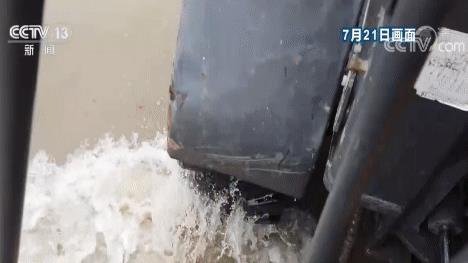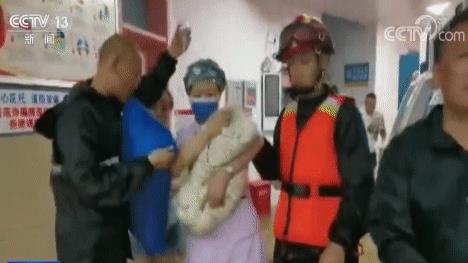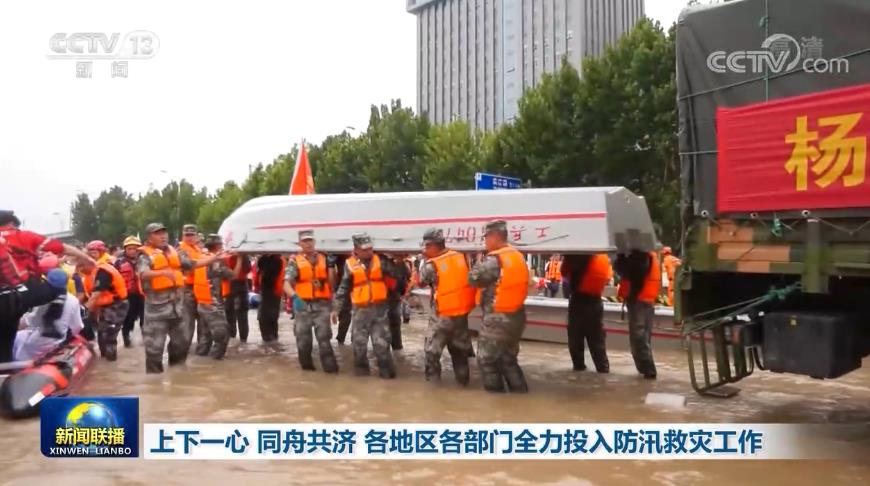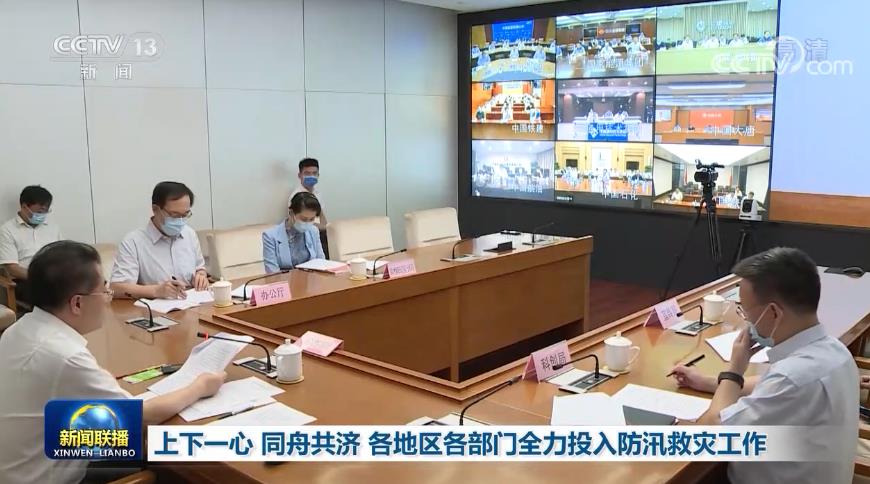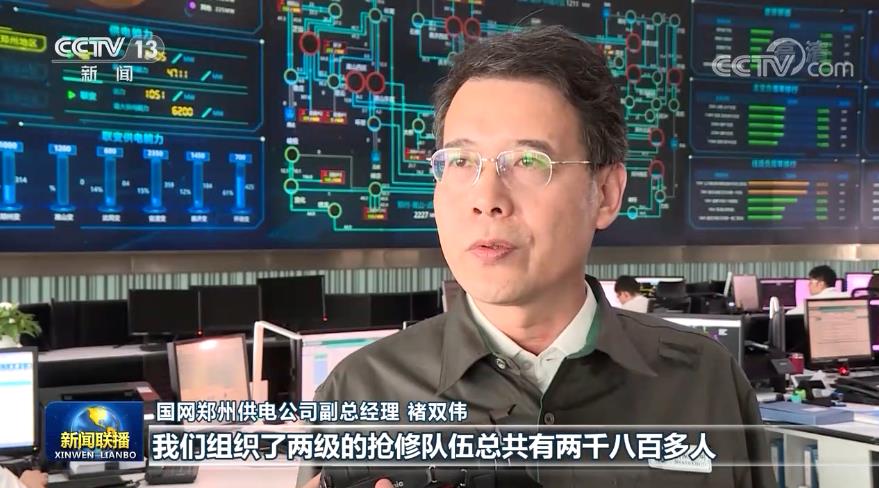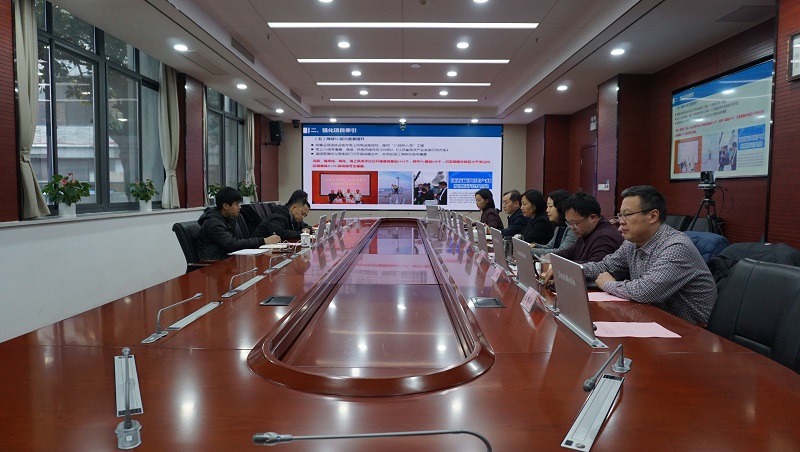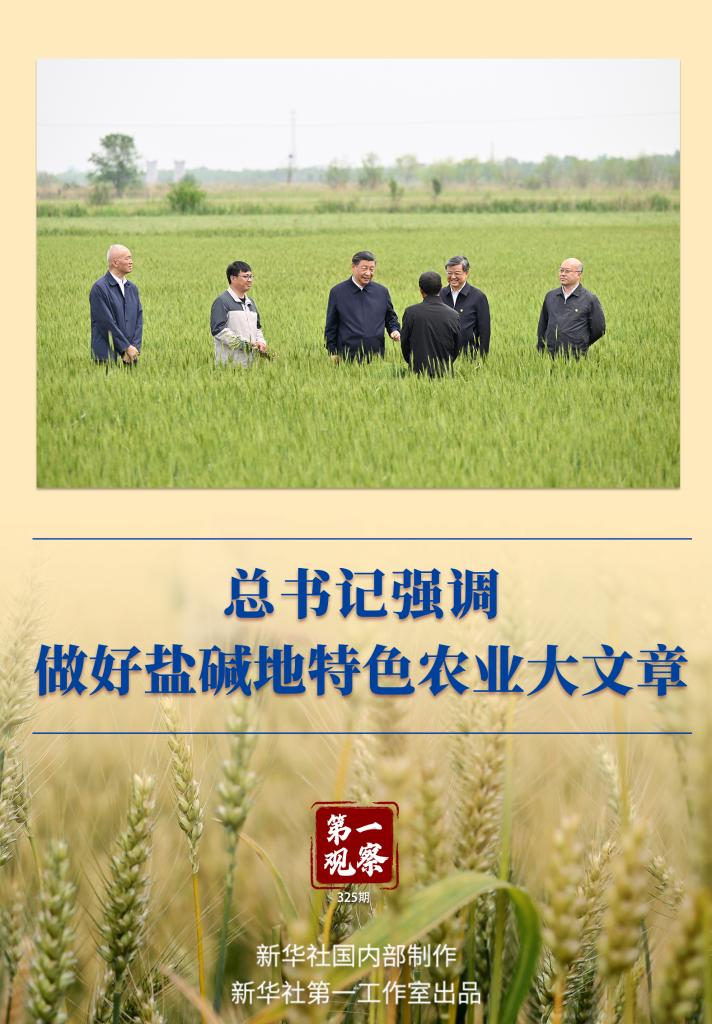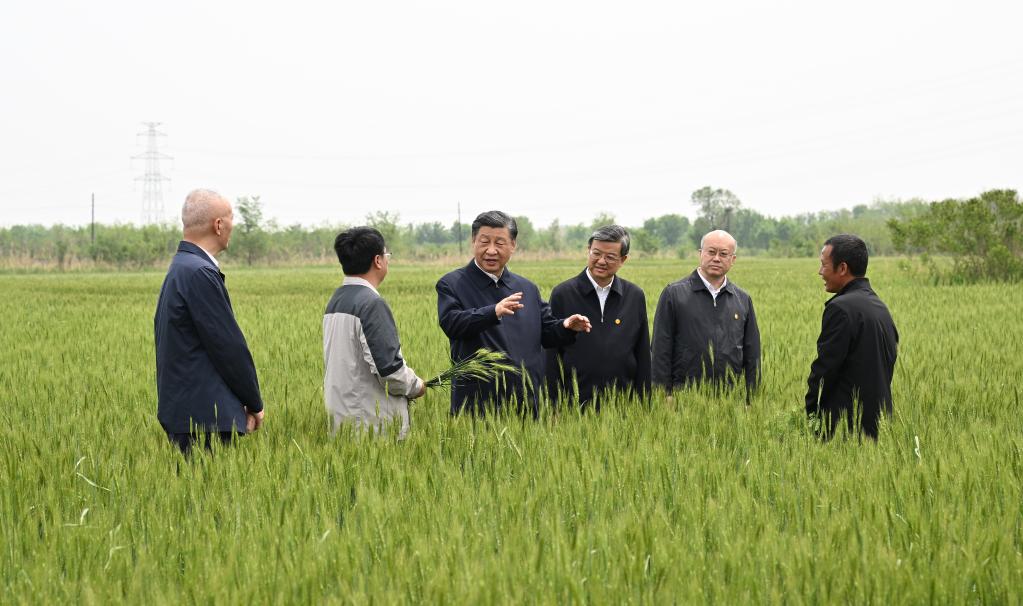
Recently, the TV series Defender starring Jin Dong surfaced and was officially broadcasted in the Golden Theater of Oriental TV. 2 episodes are updated every Sunday to Friday, and 1 episode is updated on Saturday. Currently, it has been updated to 19 episodes. With the deepening of the plot, the ratings of the drama have been rising all the way, and recently the ratings have exceeded 1 point. Last night, Hong Shaoqiu (played by Jin Dong) dismantled a time bomb for his parents, which made the audience in front of the TV very nervous and moved.
Jin Dong’s life experience in the play was bumpy, and he risked his life to dismantle the bomb to show his tenderness.
As the director of the investigation department of Mishima National Security Bureau and the "family member" of the 301 Institute, Hong Shaoqiu (played by Jin Dong) can be said to be very entangled in the play, not only to complete his own tasks, but also to take into account the feelings of the internal staff of the 301 Institute. With the deepening of the plot, Jin Dong’s life experience in the play also surfaced. He was not Zhang Xiyang’s own son, and his parents were also engineers of the 301 Institute. His father died at the bottom of the sea because he took the place of Zhang Xiyang’s deep diving, and his mother was not spared. Zhang Xiyang and his wife also adopted Hong Shaoqiu. Although many people in the 301 Institute have doubts about Zhang Xiyang’s upbringing of Hong Shaoqiu, Hong Shaoqiu is very filial to his adoptive parents. In the story broadcast last night, Zhang Xiyang and his wife were kidnapped by spies, and Hong Shaoqiu risked his life to dismantle the bomb, which made many people see the soft heart of this iron-blooded man. Jin Dong’s interpretation of Hong Shaoqiu’s moment of life and death also touched the audience in front of the screen.
The mystery of the mole hangs over 301 Guoan team to solve the case soon.
After many cases, such as data leakage and the mystery of hard disk disappearance, it is a well-known secret that there is a mole inside the 301 Institute. However, after several rounds of investigation, the Guoan team has turned the main personnel of the 301 Institute upside down, whether it is Zhang Xiyang with guilt, Shang Feifei with marital problems, or Liu Jin who is facing the pain of bereavement, and Director Shen who has many difficulties at home. Everyone has their own stories, but it seems that it is not a crime. The mystery of the ghost hangs over the 301 research institute. As long as the case cannot be solved, the deep dive of the Hilong is facing great danger. The time of the national security team is limited, but the cunning fox will show its tail one day. In the story broadcast tonight, the mole in the 301 Institute will give away the clues, and the Guoan team will launch a thrilling journey to solve the case, which the audience must not miss.
Synopsis:
The Guardian-Surfacing is a contemporary urban spy war drama directed by Jingcheng Pan, starring Jin Dong and Han Yuqin. The drama tells the story that after the core technology of the new deep-sea submersible developed by the secret unit 301 Institute was leaked, the national security investigators headed by Hong Shaoqiu and Ye Xiao set up a task force to investigate and solve the case and jointly defend national defense secrets and homeland security. The play premiered on Oriental TV on August 14th, 2017.
The new submersible developed by the Institute of 301, a secret unit, was launched in Mishima City, and the experiment process was continuously leaked. Mishima National Security Bureau received the task to solve the case within 60 days. "Bad boy" Hong Shaoqiu and "female man" Ye Han set up a task force and started a game with the enemy. The process of handling cases has repeatedly encountered unexpected obstacles, and Hong Shaoqiu and Ye Han are also full of contradictions because of their different personalities and ways of doing things. The second day after the establishment of the task force, it was cornered by the flounder "spy king" of country D, and all clues were broken. Hong Shaoqiu turned the detection perspective to a place where he was raised from a young age-301 Institute. After a struggle between emotion and reason, the mole was finally caught, and at the same time, Ye Enth’s trust was gained. A "user" of Ye Enthalpy unexpectedly appeared one day higher, which brought an unexpected turn for the whole investigation. Just as everything was moving towards the light, the "eyes" hidden in the deepest place were finally found.
Introduction to the diversity plot of The Guardian Surfaces
Episode 1-Hilong leaks, Guoan sets up 301 task force.
Mishima is a beautiful city, full of peaceful scenes. People live step by step, but there are cases happening in corners they don’t know. When Hong Shaoqiu, a national security investigator, arrested the suspect, Ye Han, who had just graduated from internship, was responsible for monitoring the suspect’s trail in front of the computer and providing relevant routes to Hong Shaoqiu in real time. Ye Han, who just graduated and has no experience, is quite green. He didn’t find that the suspect had changed his clothes and fled in another direction, providing the wrong news. Hong Shaoqiu showed no mercy and told Ye Han to shut up. With years of experience in solving crimes, he successfully caught the suspect after dressing up. It’s just that they don’t know that there is a man with a hat looking at it on the roof of the building in the distance.
Director Zhou introduced Ye Han to Hong Shaoqiu. Hong Shaoqiu had a poor impression of Ye Han, and bluntly said that Ye Han was not suitable for this job. He hoped that Ye Han would realize that doing this job requires not only what the eyes can see, but also reconnaissance and anti-reconnaissance abilities and analytical abilities. Ignoring Ye Han’s entreaties, Hong Shaoqiu suggested that Ye Han stay in the office to sort out the cases, and don’t try to stay in the action group.
Time flies, and it is eight years in a blink of an eye. Zhang Xiyang, chief engineer of 301 Research Institute, and Liu Jin and Shang Feifei, deputy chief engineers, are on their way to their destination. The new submersible developed by 301 Research Institute, a secret unit, was launched in Mishima City, and the experiment process was continuously leaked. In order to find the real leaker and suspect, Hong Shaoqiu kept people staring at the experiment and the surrounding anomalies.
During the test, TC28 system found slight oxygen leakage. After collecting samples, Hilong returned. Just when Hong Shaoqiu and others breathed a sigh of relief, Xiao Wei, an information analysis group, found suspicious channels and targeted an Internet cafe. Hong Shaoqiu immediately got up and rushed to the Internet cafe. When Hong Shaoqiu arrived at his destination, a suspected woman in a blue skirt just rode away from the back door of the Internet cafe. Hong Shaoqiu borrowed the motorcycle of passers-by, and the woman in the blue skirt was a first-class driver. Hong Shaoqiu copied the path before approaching the dead end. But I don’t want the woman in blue skirt to break through the barbed wire and escape into the parking lot. The woman in blue skirt abandoned the car and ran into the shopping mall. The flow of people in the shopping mall was too large, and Hong Shaoqiu and others did not know how to start and returned disappointed.
Hong Shaoqiu took people to dig out the milk box of the blue skirt woman in the trash can, and specially called out the list of women’s motorcycle competitions in Mishima City. The car that the blue skirt woman rode had been reported missing by the owner a month ago, which added a lot of difficulty to solving the case.
When Ye Han came to Hong Shaoqiu with his colleague Mi Xiaoran, Hong Shaoqiu was preparing to give a meeting to Guoan people to discuss the case. Hong Shaoqiu’s impression of Ye Han still stayed eight years ago, so he didn’t have such a good temper to Ye Han, but Ye Han accepted it all with a smile. See HongShaoQiu threw himself down to the meeting, also not angry, turned around and found the director zhou. Eight years later, Ye Han is not the young intern at the beginning. She is now the director of the reconnaissance department of the ministries and agencies. She is specially here to assist Hong Shaoqiu.
The final assembly of Hilong will be carried out soon. If it is successful, it will be of great help to national defense and military undertakings. However, once the secret is leaked, it will not only fail to complete the final assembly, but also pose a threat to national security.
The state attaches great importance to the progress of this case, and the National Security Bureau of Mishima City received a task to solve the case within 30 days. Director Zhou set up a 301 task force with Ye Han as the team leader and Hong Shaoqiu as the deputy team leader. Hong Shaoqiu was very unconvinced, but was interrupted by Director Zhou. He made such an arrangement and also had his own considerations. Hong Shaoqiu could only obey orders.
After Ye Han made a brief self-introduction, he went into work. Ye Han took the people of the task force to conduct a field survey of the escape route of the blue skirt woman, and determined that the blue skirt woman escaped from the staff passage through the staff dormitory, and the blue skirt woman entered the blind area after ten minutes of escape. Mi Xiaoran’s computer skills are superb, and he can determine the scope of the blind area faster than the information group, and his ability is excellent. Ye Han left Mi Xiaoran to cooperate with the investigation of the information group.
Ye Han took Hong Shaoqiu and Jiangyuan to the 301 Institute to investigate the case. Along the way, Jiangyuan introduced Hong Shaoqiu to Ye Han that he had lived in the 301 Courtyard since childhood. Zhang Xiyang was his adoptive father. Ye Han rarely became interested, but Hong Shaoqiu interrupted him impatiently.
Ye Han, Hong Shaoqiu and Jiang Yuan came to the Institute, and Bing Shen, director of the Security Department, received them. Ye Han reminded Shen Bing to keep their investigation strictly confidential, and she wanted to know the situation with Zhang Xiyang. Considering his father’s poor health, Hong Shaoqiu was worried that his father would be stimulated after knowing the leak and could not complete the test of the Hilong, so he changed the candidate he asked to the person in charge of the intelligent system without consulting with Ye Han in advance — — Sister Zhang Yan talks. Ye Xiao was dissatisfied with Hong Shaoqiu’s decision without authorization, and Hong Shaoqiu’s identity was special, so he let Hong Shaoqiu go out to avoid it.
Episode 2-Liu Zian’s bizarre death leads to deadlock
Hong Shaoqiu, who was driven out, was not angry. He believed that Ye Han was right and wrong. However, Ye Han has just arrived and doesn’t understand 301. She is worried that something has gone wrong with her.
Zhang Yan is Zhang Xiyang’s daughter and Zhang Xiyang is Hong Shaoqiu’s adoptive father, so Zhang Yan is Hong Shaoqiu’s sister. Zhang Yan saw the true identity of Ye Han at a glance under the influence of Hong Shaoqiu. After reading the USB flash drive that Ye Han gave herself, Zhang Yan can already confirm that this is all the data of Hilong’s power system. Each project of Hilong has its own person in charge. Except for Liu Jin, the deputy chief engineer, only Zhang Xiyang, the chief engineer, has access to the power system data.
Ye Han decided to contact Zhang Xiyang’s family, and she would not let go of any suspicious people. Hong Shaoqiu was very embarrassed when he learned that Zhang Xiyang had a heart attack and was in poor health. Hilong was his hard work for more than ten years, and it was his last ideal in this world. If he knew that the information of Hilong was leaked, he would definitely not stand it. Ye Han’s way of doing things is too direct. Hong Shaoqiu is worried that Zhang Xiyang will know the truth, so he repeatedly stops him, hoping that Ye Han can change his mind.
When they were arguing at the gate of 301, Zhang Xiyang’s wife saw them. Mrs. Zhang mistakenly thought that Ye Han was Hong Shaoqiu’s girlfriend, so she warmly invited Ye Han home for dinner. Ye Han took this opportunity to come to Zhangjia to inquire about the news. Mrs. Zhang likes Ye Han very much and praises her clever and sensible. Hong Shaoqiu’s face is very embarrassed. He can’t stop Ye Han’s determination to find out the case, but he doesn’t want Zhang Xiyang to know the truth. When Zhang Yan came home, she found that Ye Han was actually there. She understood that they suspected the object of leaking information to her father Zhang Xiyang, and her face immediately turned from sunny to cloudy. Pull Hong Shaoqiu into the dark, and let him decide what to do. If his father knows the truth, the consequences will be out of control.
Ye Han met Zhang Xiyang, the chief engineer. During dinner, Ye Han began to test Zhang Xiyang. Zhang Xiyang is very clever. As soon as Ye Han spoke, he knew that the purpose of Ye Han’s trip was not simple, but he didn’t ask much. Zhang Xiyang is very confident about the information leakage incident that Ye Han asked about, because the security of 301 is strong enough, and the database terminal needs three keys to open at the same time. Even if the information is leaked, it can only be partially leaked but not completely leaked. Ye Han also wanted to ask, but was interrupted by Mrs. Zhang, who was serving food. The opposite Hong Shaoqiu also handed me a warning look.
Ye Han returned to the planning team and immediately arranged for people to track Zhang Xiyang and Liu Jin for 24 hours, and arranged for people to check the security system of 301 to find out the loopholes as much as possible. Director Shen of 301 Research Institute and Ye Han Hong Shaoqiu introduced the security system of 301 in detail. When Hong Shaoqiu left, he asked for all the monitoring data of 301 this month. Ye Han took it back and asked the task force to find out the suspicious place in one night.
The people in the task force stayed up all night and finally found a suspicious place the next morning. Liu Zian, the son of Liu Jin, the deputy chief engineer, used the time error of the system to sneak into Liu Jin’s office, opened the safe with the stolen key and got Liu Jin’s computer. There is no doubt that Liu Zian is the key to this information leakage.
Liu Zian doesn’t live with his parents, but lives alone in a single apartment in Room 301. Director Shen came to Liu Zian’s apartment with Ye Han and Hong Shaoqiu. This is an old apartment. Liu Zian lives in 702, and there is no elevator. Before Ye Han and others went upstairs, Liu Zian fell from the upstairs and died on the spot. Hong Shaoqiu opened Liu Zian’s room with a hairpin, and there was an electronic suicide note on the computer in the room. The room was unusually clean. Hong Shaoqiu grew up in a yard with him. In his impression, Liu Zian was not such a clean person. Ye Han found the expired slimming yogurt in the refrigerator. The two guessed that although there were no women’s daily necessities in this room, there were indications that Liu Zian had female friends around him.
Hong Shaoqiu and Ye Han visited Liu Jin and learned that Liu Zian had asked his father for money many times before his death. Then I went to the 4S shop where Liu Zian worked before his death, and there was no useful news. When Hong Shaoqiu left, he found that the 4S shop in the store had the same vacuum cleaner as Liu Zian’s home, and then he found the purchaser Tommy. Tommy denied that he had too much friendship with Liu Zian, but he was soon debunked. Tommy finally admitted that he was dating Liu Zian, but employees were not allowed to fall in love with each other, so their relationship was not made public. After falling in love, Tommy found that Liu Zian was not a suitable marriage partner, because he was not motivated or even lazy, so she broke up a month ago. Tommy got to know his current partner under the introduction of his family and decided to get married at the end of the year. However, Liu Zian mistakenly thought that Tommy abandoned himself because he had no money, so he found Tommy on the morning of his death, saying that he now had 500,000 yuan and could live well with Tommy, but Tommy refused. Tommy didn’t think Liu Zian would really commit suicide.
After recording the confession, Hong Shaoqiu knew that Tommy was not the murderer and arranged for her to leave. At the same time, Hong Shaoqiu can be sure that Liu Zian did not commit suicide, so where is the 500,000 he stole the key for now? The woman in the blue skirt with a yellow sun umbrella in the surveillance left half an hour before Liu Zian fell from the building. Whether she is connected with the case or not, they dare not judge, but at this time, there is no whereabouts of her in the national security office.
Liu Zian, who stole the key, has died, and the clues just discovered are broken. I don’t know if it is the secret room murder that Hong Shaoqiu said. Anyone can reason, but we must produce evidence to convince the public.
Episode 3-The truth of Liu Zian’s death is one day closer to Zhang Yan.
Ye Han found the phone number of Gong Huaiyuan, the husband of Shangfeifei, in Liu Zian’s phone records, so Ye Han took Mi Xiaoran to Shangfeifei’s house and asked the reason. It turned out that Liu Zian had resigned from 301 and went to work in 4S shop. Because of his poor performance, he was fired and wanted to return to 301 to continue his work. Gong Huaiyuan happens to be in charge of the logistics department. Ye Han learned from Shang Feifei that Liu Zian had invited Shang Feifei and his wife to drink milk, and after drinking the milk, Shang Feifei and his wife felt groggy and wanted to sleep. So Ye Han took the rest of the milk for testing.
On the other hand, Liu Zian’s autopsy report showed that there was a lot of alcohol in his body, so it was impossible for Liu Zian to write a sentimental suicide note when he was drunk, so Liu Zian certainly did not commit suicide. Ye Han also noticed that Liu Zian fell from the upstairs 30 minutes after the yellow parasol left, so the yellow parasol was very suspicious. So how did the murderer create the illusion that Liu Zian committed suicide?
Hong Shaoqiu Hong Shaoqiu recalled the intelligent sweeper in Liu Zian’s home, and had a flash of light. It was inferred that the yellow parasol woman put on gloves and moved the drunken Liu Zian to the window, and used the bench, intelligent sweeper and vacuum cleaner to create the illusion of Liu Zian’s suicide. Everyone was amazed at his on-site restoration.
Tommy found a piece of paper in a supermarket storage cabinet in Liu Zian’s clothes, and sent it to Hong Shaoqiu, a planning team. Everyone thanked her. Jiangyuan took back a notebook of Liu Zian from the Public Security Bureau, which was empty. Hong Shaoqiu used pencil and tissue paper to restore the information in the notebook. It was a receipt of 500,000 yuan, and it was signed by Chen Mu. I was ordered to go to the supermarket storage cabinet to check the source of the things in the cabinet, only to find that the cabinet was empty, and a woman with a yellow parasol appeared again in the monitoring.
The inspection report of the milk that Shang Feifei drank also came out, which contained sleeping pills. Ye Han boldly guessed that now, except for the key in Zhang Xiyang’s hand, the other two keys have been touched by Liu Zian. Therefore, Ye Han put all his focus on Zhang Xiyang.
Zhang Yan is very clever, and infers that something happened to 301 from all kinds of anomalies of Hong Shaoqiu. Hilong is Zhang Xiyang’s lifelong wish. She doesn’t want Zhang Xiyang to be sad. Hong Shaoqiu promised on Wednesday that nothing would happen to Hilong.
Zhang Yan was picked up by a man named Gao Tianyi. Zhang Yan and Gao Tianyi are just casual acquaintances. Today, they made an appointment to climb together. When Hong Shaoqiu saw Gao one day, he remembered that he was the man he had seen in the parking lot last time. He had doubts in his heart and asked Xiaowei to check the license plate number, but found nothing unusual.
When Zhang Yan and Gao Yi climbed the rock, Gao Yi made a bet that the loser would satisfy the wishes of the winner, and Zhang Yan accepted. When Zhang Yan bowed her head and wrote her wish, she tampered with the rock climbing one day, deliberately letting Zhang Yan fall, while pretending to save people and make a human cushion. Zhang Yan was really moved and sent her to the clinic where Mrs. Zhang was located in order to save her injured day. Mrs. Zhang mistakenly thought it was Zhang Yan’s boyfriend and had a good time.
When Ye Han took people to monitor Zhang Xiyang, he found that Zhang Xiyang put his hand over his chest and his face was ugly. Knowing that Zhang Xiyang was ill, Ye Han immediately got off the bus and sent Zhang Xiyang a quick-acting rescue pill and sent Zhang Xiyang home. Knowing that Zhang Xiyang was ill, Hong Shaoqiu was very nervous and hurried home, only to find that Ye Han was at his home, mistakenly thinking that Ye Han had come to investigate the case, and his attitude towards him was very bad. Later, Hong Shaoqiu learned that Zhang Xiyang suffered from diarrhea because of eating the food in the canteen. Fortunately, Ye Han provided the medicine in time, so Zhang Xiyang could go home safely.
When Hong Shaoqiu learned that he had misunderstood Ye Han, he was very embarrassed. When he sent Ye Han home, he apologized and told Ye Han that the case would develop greatly tonight. At the door, Hong Shaoqiu met Zhang Yan, who was sent back by Gao Yi. Zhang Yan was staring blankly at the note handed to her by Gao Yi. It turns out that the wish of the first day of high school is that Zhang Yan should be his girlfriend.
Jiang Wensuo, director of the logistics department, received a mysterious phone call. The mysterious man said that he wanted all the data of Hilong, except the one on Jiang Wensuo, and the remaining two were put in his mailbox. Jiang Wensuo got the two keys as instructed.
At this time, Jiangyuan has pretended to be the air conditioner maintenance personnel of the logistics department, and mixed in with 301, and met Jiang Wensuo in the duty room. Jiang Wensuo did not find Jiangyuan’s true identity.
Episode 4-Zhang Xiyang’s key is copied and Jiang Wensuo falls into the French Open.
Hong Shaoqiu guessed from Liu Zian’s case that the keys of Shang Feifei and Liu Jin were copied, and Zhang Xiyang’s key was estimated to have been copied. The evidence is that Zhang Xiyang had a meal in the cafeteria but had a stomachache for a week, which gave the suspect enough time to commit crimes. Hong Shaoqiu, through various speculations, locked the target on Jiang Wensuo.
Jiangyuan followed Jiang Wensuo to repair everywhere. Finally, Jiangyuan was held off by Jiang Wensuo’s excuse to leave tools behind. Jiang Wensuo didn’t know that all his actions were under the supervision of Hong Shaoqiu and others. He wanted to solve the guards in the data terminal library. Hong Shaoqiu found it timely and called the guards. Jiang Wensuo was extremely nervous. After everything was ready, he inserted all three keys into the keyhole. Director Shen didn’t go in to find out the situation with the arrangement personnel because of the command of Hong Shaoqiu. It was Jiang Wensuo who thought he was safe and got all the information.
Just when Jiang Wensuo copied all the materials and was ready to leave, he was caught up by Hong Shaoqiu, and Jiang Wensuo understood that he was finished. Jiang Wensuo didn’t argue and put everything out of the tray. It turned out that six months ago, he saw an envelope without a name in the mailbox, which contained a bank card and a note with the password of your birth month. The next day, he received a phone call from a man who claimed to be Tom Cat. Tom Cat told him that there was a million dollars in his bank card. Jiang Wensuo hung up the phone, took the bank card and checked it at the bank. There was really one million in it. Jiang Wensuo was moved. Tom Cat said that he had come to help him, and that he could help his son pay off his gambling debts, his wife’s medical expenses and his little grandson’s money for college. He knew that he would not get what he wanted. The other party said that it was a small matter and would not disturb Jiang Wensuo’s life. Jiang Wensuo thus embarked on the road of no return.
Hong Shaoqiu grew up in the courtyard of 301, and had strong feelings with these people, so when he learned that Jiang Wensuo was a suspect, he refused. In fact, Jiang Wensuo didn’t help them do anything, just taking photos of the dock and taking minutes of the meeting. But half a month ago, Tom Cat called and asked Jiang Wensuo to copy Zhang Xiyang’s key. So taking advantage of the reception in the institute, Jiang Wensuo invited Zhang Xiyang to eat the food cooked by himself, and the food was laxative. Soon Zhang Xiyang went to the bathroom, and he took the password of the safe with the monitor, got the key from Zhang Xiyang’s briefcase, and copied Zhang Xiyang’s key with the Replicator Tom Cat gave him. In this way, Jiang Wensuo made the first big mistake.
Originally, Zhang Xiyang would definitely react positively with the institute because he ate a bad stomach in the canteen, but Zhang Xiyang knew that if there was something wrong with food safety, Jiang Wensuo would be punished. In order to cover him up, Zhang Xiyang chose to hide it. After analyzing Jiang Wensuo’s confession, Hong Shaoqiu and others learned that Jiang Wensuo would put all the data in the locker of a supermarket, and then tell the other party the locker number and password, and the other party would arrange for someone to pick it up.
Hong Shaoqiu played along and asked Jiang Wensuo to put the hard disk into the locker of the supermarket as planned, and then arranged relevant personnel at all intersections and telephone booths in the supermarket. Hong Shaoqiu wanted to catch a big fish in the long run, so he gave the hard drive to Jiang Wensuo and promised Ye Han that he would transfer it to the big fish. Jiang Wensuo entered the supermarket with the briefcase and hard disk with GPS positioning system, and Tom called. Because of the short time, Ye Han and others could not determine each other’s position.
Mi Xiaoran let his partner Liu stick to his post, while he sneaked into the supermarket to find suspicious people. Mi Xiaoran met a woman with a blue skirt in the toilet. She wore a white skirt today. Mi Xiaoran followed her and found that she took the hard disk of Container 08, threw the briefcase with GPS system into the trash can, and then she went into the ladies’ room.
Mi Xiaoran followed closely, but did not find the whereabouts of the mysterious woman. Hong Shaoqiu and others immediately strengthened the personnel investigation at various intersections, and there were no relevant suspicious personnel.
Episode 5-Disguised as a woman, Ling Xiaosong is caught as a foundling.
The hard disk was taken away, and the briefcase with the positioning system was left behind by the mysterious woman. Ye Han began to worry about the safety of the hard disk, and Hong Shaoqiu assured her again that the target task would not be lost. Hong Shaoqiu arranged for people to follow the mysterious woman all the way to Hutong Road. The mysterious woman may have realized that she was being followed and walked into a children’s paradise. The staff did not dare to relax. Mi Xiaoran followed the mysterious woman into the public toilet, only to find that the mysterious woman had disappeared, and the task force lost the clue again.
Hong Shaoqiu found the video of the head of the supermarket security department going to the supermarket, and met with the frequent appearance of one day higher and one day higher, which made Hong Shaoqiu somewhat suspicious.
The mysterious woman managed to escape and took away the hard disk, which made Ye Han furious and said that she wanted to find Zhou Bureau to replace Hong Shaoqiu, the deputy team leader. Hong Shaoqiu was angry when he heard this. He did make mistakes this time, but it has nothing to do with his sense of responsibility. Ye Han asked Hong Shaoqiu to write a review, but Hong Shaoqiu refused. Ye Han found Zhou Bureau and said that either Hong Shaoqiu left the task force or she left the task force herself, and she and Hong Shaoqiu could not coexist peacefully. Zhou Bureau knows Hong Shaoqiu. Although he did make a mistake this time, no one is more suitable to cooperate with Ye Han. He rejected Ye Han’s application.
Hong Shaoqiu brought up the video of the mysterious woman entering the toilet with the people of the task force, and soon he realized that the mysterious woman might not be a real woman, but a man pretending. Following this line of thinking, they analyzed this monitoring and found that within fifteen minutes, only one man came out wearing the same pair of shoes as the mysterious woman, but no man wearing the same sneakers as the mysterious woman entered the toilet. Therefore, Hong Shaoqiu concluded that the mysterious woman was pretending to be a man.
Men can’t go to a physical store to buy women’s clothes, so they can only go to Taobao. Xiao Wei and others soon found a shop selling both blue and white skirts in Taobao, and determined the identity of the person who bought both blue and white skirts — — Ling Xiaosong, the phone number left by the buyer is the number of the reception office of the First Pharmaceutical Factory.
Ye Han took the task force to the First Pharmaceutical Factory to collect information about Ling Xiaosong. Some people claimed that they had seen Ling Xiaosong on the 996 bus. Following this clue, and then contacting Ling Xiaosong every day and the living conditions of imported milk, Mi Xiaoran narrowed the scope to two sites. At the first site, they missed it. At the second site, Ling Xiaosong just staggered with them and returned to his residence after shopping. Mi Xiaoran accidentally got the news that Ling Xiaosong lived in a humble abode from a customer, so the task force immediately rushed to the humble abode and blocked all intersections.
The people in the organization already knew that Ling Xiaosong was exposed and decided to abandon Ling Shaoqiu. Ling Xiaosong has a teacher, Qian Shoucheng, who taught him by himself. In order not to let Ling Xiaosong fall into the hands of the task force, Qian Shoucheng decided to abandon Ling Xiaosong. Ling Xiaosong got a call from Qian Shoucheng and learned that he had been exposed. He was also a little flustered. He escaped the pursuit of the Hong team and others and escaped into 506. Ling Xiaosong didn’t know that the organization had decided to abandon himself at this time. He called Qian Shoucheng to tell him his position, hoping that he could help him escape.
Hong Shaoqiu and others stepped up the search of the building. Jiangyuan found a cigarette butt on the opposite floor and brought it back. Hong Shaoqiu met a mother and daughter waiting at the bottom of the building. At this time, he didn’t know that the mother and daughter were really residents of 506, and Ling Xiaosong was hiding in 506. Qian Shoucheng, who pretended to deliver the courier, deliberately detonated the gas tank of the building in order to distract the attention of the task force, causing panic.
When Hong Shaoqiu took people to dredge the residents, he met the mother and daughter he saw downstairs, and when Ye Han’s video still stayed on the mother and daughter going upstairs, Hong Shaoqiu realized that the monitoring had been tampered with.
Episode 6-Ling Xiaosong is hunted down and her family’s safety is threatened.
Ling Xiaosong took advantage of the chaos and ran to the opposite building and ran away with a motorcycle. Ling Xiaosong came to an abandoned factory according to Qian Shoucheng’s instructions. Ling Xiaosong didn’t know that Qian Shoucheng was waiting for him. Qian Shoucheng controlled Ling Xiaosong with a gun from behind. The organization has clear regulations that Ling Xiaosong must die if exposed, otherwise he will die next. The factory attendant suddenly appeared, causing Qian to be distracted and shooting at the attendant. Ling Xiaosong took the opportunity to kick Fei Qian Shoucheng’s mobile phone, and the two men fought in close combat. Qian Shoucheng didn’t catch Ling Xiaosong in the end. The organization was very angry about this and asked him to solve Ling Xiaosong as soon as possible.
The monitoring is indeed passive, and there is a shortage of video for about ten minutes. Today, only the residents who sent the courier and received the courier have entered the monitoring management office. After investigation, Mi Xiaoran confirmed that it was a courier company. The company just lost a courier car today, but it was quickly found on the side of the road, but all the couriers in the humble abode were lost.
Hong Shaoqiu restored Ling Xiaosong’s escape route through a lot of scattered information, and determined the appearance characteristics of his accomplice Qian Shoucheng: a middle-aged man, neither fat nor thin, wearing a pair of glasses. The clue was broken again. While Ye Han and others were waiting anxiously, they received the news about Ling Xiaosong from the Public Security Bureau.
Ling Xiaosong’s lost motorcycle was found in the seaside community, and there was a shooting incident. The personnel on duty and Hong Shaoqiu and others talked about the scene, and found that the bullet marks on the wall looked like melee attacks, suspecting that Ling Xiaosong was attacked by acquaintances. The person on duty said that he only went out when he heard someone knocking on the window of the duty room, and found two men fighting in the factory. The person on duty doesn’t know who is knocking at the window, but what is certain is that the person knocking at the window is to attract the attention of the person on duty and then save Ling Xiaosong.
Ling Xiaosong ran away. He wandered outside for a day. At night, he called his mother and told her that he could go home tomorrow. Ling Xiaosong has a daughter, little darling, who suffers from leukemia. He works so hard just to save his daughter.
Ling Xiaosong has nowhere to go but to go home. Qian Shoucheng has known him for so many years and knows him too well. So Qian Shoucheng found the station and suddenly saw Ling Xiaosong who was waiting in line to buy tickets. Ling Xiaosong finally got rid of Qian Shoucheng’s pursuit, called her mother and told her to stop the little darling’s chemotherapy and wait for herself in the hospital.
The main purpose of Gao Yitian now is to seduce Zhang Yan, make her fall in love with herself, and get the intelligent system key of Hilong. Although Zhang Yan feels good about her senior day, she still treats her as an ordinary friend. Gao Yi deliberately followed Zhang Yan one day and came to Mrs. Zhang’s clinic in the name of dressing change, inviting Zhang Yan to have lunch with herself. Mrs. Zhang has a good sense of the first day of high school. If she wants to fix them up, she will let them go out for dinner together.
During the meal, one day after high school, Zhang Yan was asked about her boyfriend’s standards. Zhang Yan did not hesitate to answer like her brother Hong Shaoqiu. Gao Yi smiled and said that she was going to be close to Hong Shaoqiu. Zhang Yan’s smile immediately faded. She had only known Gao Yi for a month, so she wanted to start with friends.
Hong Shaoqiu and Ye Han came to Ling Xiaosong’s hometown. They also learned from neighbors that Ling Xiaosong had lost his father since childhood and lived alone with his mother. He had a daughter, but unfortunately he had leukemia and his wife ran away. Under the guidance of enthusiastic neighbors, I found Ling Xiaosong’s house. Grandma Ke Ling took the little darling to the county for chemotherapy, and there was no one at home. Ye Han deliberately distracted his neighbors, and Hong Shaoqiu took the opportunity to sneak into the room, but accidentally bumped into Qian Shoucheng who came to kill Ling Xiaosong.
When Hong Shaoqiu and Ye Han were tracking Qian Shoucheng, the car had a flat tire and lost the target. The two can only abandon the car and walk on the road. Qian Shoucheng has been to all hospitals in the county and is on his way to Ling Xiaosong’s hospital. Ling Xiaosong knew that she was easy to be exposed now, so she asked grandma Ling to go through the formalities of leaving the hospital for the little darling. When Ling Xiaosong went to get the medicine for the little darling, he saw the money that had come to arrest him.
Episode 7-Ling Xiaosong escaped from danger. Grandma Ling and Nan Nan fell into the hands of others.
After seeing Qian Shoucheng, Ling Xiaosong didn’t have time to take the medicine. He turned around and gave grandma Ling the address and key of her new residence, letting her leave first with a little darling, while he was prepared to risk himself to distract Qian Shoucheng. Almost at the same time, Hong Shaoqiu found the figure of Ling Xiaosong, and Ling Xiaosong forgot other things and hurried away. Ling Xiaosong found a white coat and put it on, avoiding the pursuit of Hong Shaoqiu, but was discovered by Qian Shoucheng who was also disguised as a doctor. Qian Shoucheng had a gun in his hand. Ling Xiaosong didn’t dare to make a move, but he was smart. When the elevator door closed, he kicked Qian Shoucheng out and escaped again.
The sound of Qian Shoucheng tapping the elevator door caught the attention of Hong Shaoqiu and Ye Han. Qian Shoucheng ran away, but Hong Shaoqiu and Ye Han didn’t chase after him. Instead, they turned to find grandma Ling and the little darling in the hospital, but they were told that they had left the hospital. After seeing the monitoring of the hospital, the two men decided that they met the man who wanted to kill Ling Xiaosong at the subway entrance, and Ling Xiaosong should have appeared to distract his attention. Little darling still had a fever. She was given two critical notices but was taken out of the hospital by her parents. The situation was not optimistic. Hong Shaoqiu decided to find out the whereabouts of the child first.
Ling Xiaosong fled three transgressions and four times, and the organization was very dissatisfied with Qian Shoucheng’s efficiency. Mei-Mei Wong felt that things were not going well recently, but he smiled and said, "Many good things grind.". One day in high school, she set up a game to pretend that her mother was about to die, hoping that Zhang Yan could promise to be her girlfriend. Although Zhang Yan is rational and calm, she is still just a woman with blank emotions. Looking at Gao Yi crying so helplessly in front of her, she softened her heart and took the necklace of Gao Yi, a necklace with a special chip. Gao lied one day, made up a friend to save himself and died, and helped him take care of his elderly mother until his death. Because Zhang Yan was distressed, she really believed the lie of the first day of high school. Under the insistence of the first day of high school, she left a necklace.
Hong Shaoqiu and Ye Han drove their motorcycles to the place where the car broke down, but they were caught in heavy rain, and they were trapped in the car. Only when Hong Shaoqiu saw the photos in Ye Han’s wallet did he know that Ye Han was the daughter of his predecessor, Lao Ye, who helped him a lot. He always respected Lao Ye. When Ye Han first cooperated with Hong Shaoqiu, it was for her father’s sake, but she was denied by Hong Shaoqiu because of her mistake, so she did not enter the action group. After listening to this, Hong Shaoqiu felt guilty and apologized to Ye Han. The next day, when Ye Han woke up, Hong Shaoqiu had repaired the car, found the car that Qian Shoucheng had lost, and found a pendant engraved with the word "money" in the car. They came to the nightclub where Ling Xiaosong once worked, and learned from the staff that Ling Xiaosong was indeed taken away by a man surnamed Qian.
The chip prepared by Mei-Mei Wong is a hot chip, which can work all the time depending on Zhang Yan’s body temperature. Once Zhang Yan enters the work area and turns on her computer, the virus will invade Zhang Yan’s computer. When Zhang Yan turned on the computer, Mei-Mei Wong sat in front of the computer and began to implant the virus. It only took ten minutes to implant the virus. Mei-Mei Wong and Gao Tianyi thought it would be successful this time, but the computer showed that the information was interrupted. It turned out that Zhang Yan’s colleague mistakenly thought that the necklace was sent by Zhang Yan’s boyfriend, and she was generous and bought such an expensive necklace for her. At this time, Zhang Yan knew the value of the necklace, and immediately took off the necklace, intending to give it back to Gao one day. The hot chip will stop working because it leaves the temperature provided by the human body.
Ling Xiaosong managed to sneak back to his newly rented house, only to find that grandma Ling and little darling had disappeared, and there was only a note on the table. Grandma Ling and the little darling have been taken away! Ling Xiaosong felt that the sky was going to fall for a moment. Ling Xiaosong called the number on the note, heard grandma Ling’s voice, but was quickly hung up. Ling Xiaosong came to the place requested by a strange woman and met a middle-aged woman. This woman was Zheng Wanzhi, who was in the same clinic as Mrs. Zhang, and was also the one who saved Ling Xiaosong in the factory that day. She seemed to be very clear about Ling Xiaosong’s identity. After asking Ling Xiaosong a few questions, I understand that Ling Xiaosong is just a small pawn, and his organization deliberately exposed him, so that there will be one less person when sharing the spoils. After listening to each other’s analysis, Ling Xiaosong realized that he had been cheated all along.
Grandma Ling and the little darling are now in Zheng Wanzhi’s hands. Ling Xiaosong was forced to promise to help her steal the data leaked by Hilong, and Zheng Wanzhi promised to give him 20 million after the job was done. Ling Xiaosong entered a spa according to Zheng Wanzhi’s instructions, and joined Wan Yu, the joint person, and learned that the joint password was the password to open the secret room.
Ling Xiaosong successfully sneaked into the secret room, got the hard disk, called Zheng Wanzhi and asked for cash on delivery, and the location was set at Linhai Road construction site.
Episode 8-One day of high school, trying to win sympathy, Ling Xiaosong was hunted by three parties.
When Mei-Mei Wong returned to the Chamber of Secrets again, in addition to the hard disk, he also lost a pistol. The whole person was not well, so he immediately called Gao Yi. One day later, he realized that there must be someone behind Ling Xiaosong, otherwise he could not have found the secret room and taken the hard disk away in such a short time.
Ling Xiaosong has two hard disks in his hand, one of which he brought back without any data, and the other one is just obtained. Ling Xiaosong gave her hard drive to Zheng Wanzhi, and successfully took away grandma Ling and the little darling.
Zheng Wanzhi started the hard disk in an Internet cafe and found that she was cheated by Ling Xiaosong. There was nothing in it. Ling Xiaosong’s hard disk was implanted with a tracking Trojan by Mi Xiaoran. When the hard disk was opened, Mi Xiaoran received a signal and tracked the user’s position. It was an Internet cafe. Hong Shaoqiu and others sometimes saw a new Zheng Wanzhi appear in the line of sight in the monitoring of Internet cafes. Ling Xiaosong was exposed in an Internet cafe. If Zheng Wanzhi had a relationship with Ling Xiaosong, he would never make the same mistake. Ye Han and Hong Shaoqiu decided to focus on Ling Xiaosong. As long as they found Ling Xiaosong, all the problems were solved. They immediately sent someone to monitor grandma Ling’s bank card.
Mei-Mei Wong followed Wan Yu all the way. When Wan Yu learned that she was exposed, she called Zheng Wanzhi for help. Wan Yu successfully got rid of Mei-Mei Wong and took over with Zheng Wanzhi. Wan Yu has been exposed, and the club can’t go back. Ling Xiaosong has no delivery channel, and he will definitely call himself again. Zheng Wanzhi is very confident.
Zheng Wanzhi and Wan Yu searched the local community where Ling Xiaosong abandoned his car, but found no trace of Ling Xiaosong. Ling Xiaosong is smarter than they think. Zheng Wanzhi told Wan Yu that Gaotian was ambitious, and even if he got the complete information of Hilong, he would not give it to K Group, so they must not let the hard disk fall into Gaotian’s hands again.
Mei-Mei Wong will react to today’s situation and realize that their employer, K Group, has made some moves. And K Group has always sent people to keep an eye on these people’s movements in the dark. Now, even it has found its own plan and plans to send people to rob the hard disk.
Little darling suddenly had a high fever at night, and Ling Xiaosong had no change on him, so she took grandma Ling’s bank card to withdraw money, and then spared the long way to buy medicine, but she didn’t buy the right medicine. The first time grandma Ling’s bank card was withdrawn, the people in the task force received the information and immediately took people out. Ling Xiaosong’s anti-reconnaissance ability is so strong that some people are always one step behind. When they arrive, Ling Xiaosong has disappeared.
Hong Shaoqiu guessed that the situation of Ling Xiaosong’s daughter was unstable, and Ling Xiaosong would definitely go to the pharmacy to buy medicine again, so she filmed the information analysis team to keep an eye on the monitoring of all pharmacies and ensure that Ling Xiaosong was captured as soon as he appeared.
When Ling Xiaosong got up, Grandma Ling had taken the little darling to the park to play. Ling Xiaosong mistakenly worried about their safety and chased them out. After playing with the little darling, she told grandma Ling not to talk to anyone and not to go out easily. Grandma Ling didn’t understand the reason, and she didn’t know what happened. Ling Xiaosong kept silent.
Ling Xiaosong went out to buy medicine, and came to Sunshine Pharmacy again. The clerk had contacted the people in the planning group before and saw Ling Xiaosong’s appearance, so he called the police. Mi Xiaoran also found Ling Xiaosong in the monitoring. Hong Shaoqiu, Ye Han and Jiang Yuan soon arrived at Sunshine Pharmacy, but at a critical moment, they found each other with guns in their hands. Ling Xiaosong hijacked the pregnant woman who paid the bill at the pharmacy checkout counter and successfully fled the scene before the action group arrived.
Ling Xiaosong ran home sweating, only to find that Grandma Ling had gone out to buy food and lost her temper for a while. Grandma Ling noticed his strangeness and could only tell him not to do anything illegal and criminal.
Episode 9-Grandma Ling and Little Nan are kidnapped again. Ling Xiaosong asks Guoan for help.
Zhang Yan asked out the senior day and gave it back on the grounds that the necklace was too expensive. After a day of high school, he retreated and didn’t take back the necklace. Frankly speaking, if Zhang Yan doesn’t like it, he can throw it away directly, but he can’t take back the necklace. When Zhang Yan heard this, she was embarrassed to talk about the necklace again. As long as Zhang Yan doesn’t wear a necklace, Mei-Mei Wong can’t get the data of the intelligent system. Gao Tianyi has no idea to touch this now. He just wants to find Ling Xiaosong and find out the mole.
Ling Xiaosong was worried about the exposure of her whereabouts, and was not allowed to go out with her little darling. She was sick and uncomfortable, and wanted to go downstairs to play, but she was stopped by Ling Xiaosong. Grandma Ling mistakenly thought that Ling Xiaosong owed money and offended people. Ling Xiaosong was upset, but she didn’t show it.
Qian Shoucheng received a phone call from Ling Xiaosong. Ling Xiaosong asked for thirty million yuan in cash, so he gave him the hard disk. Mei-Mei Wong and Gao Yi hate and are happy, but Gao Yi left a mind’s eye and made Ling Xiaosong promise to trade only with himself. Trading places is the site of Linhai Road, at ten o’clock in the morning. Ling Xiaosong didn’t abide by the agreement. At the same time, he called Zheng Wanzhi, also asked for 30 million cash, and handed over the hard disk.
Ling Xiaosong was taught by Qian Shoucheng, so he knew Ling Xiaosong. The trading time is tomorrow morning, but Ling Xiaosong needs to step on the spot in advance to determine the escape route, and all this is seen by Qian Shoucheng in the dark. Ling Xiaosong is very clever, knowing that the hard disk is his only way out now, so he can’t stay on himself or at home. If he wants Ling Xiaosong to hand over the hard disk, he just needs to hold it in his hand, not afraid of Ling Xiaosong’s intransigence. Qian Shoucheng followed Ling Xiaosong all the way to his residence. He didn’t disturb Ling Xiaosong. After remembering the address, he left quietly.
My little darling’s birthday is in winter, but Ling Xiaosong has never given her a decent birthday, so he bought a cake specially for her to make up her birthday today, and she was very happy. After eating the cake, Ling Xiaosong rarely took the little darling out for a walk.
The next day, when Ling Xiaosong went out to meet Zheng Wanzhi, Qian Shoucheng sneaked into the apartment, rummaging through the hard disk, but without results, he took grandma Ling and the little darling away. Zheng Wanzhi knew that Ling Xiaosong had many thoughts, so Ling Xiaosong didn’t bring a hard disk and Zheng Wanzhi didn’t bring cash. The negotiations broke down.
Just as Wan Yu left the scene and met Zheng Wanzhi, Qian Shou made it, and they watched from the other side. When Qian Shoucheng and Ling Xiaosong met, he didn’t bring any money, and he didn’t worry that Ling Xiaosong would shoot, because grandma Ling and the little darling had fallen into his hands. Ling Xiaosong drops his pistol. He doesn’t care about anything, but he can’t help but care about the life safety of grandma Ling and little darling. Qian Shoucheng left his mobile phone and asked Ling Xiaosong to bring his hard disk and call himself.
Ling Xiaosong shouted helplessly. He ran home, looked at the messy room, ran to the roof and took out the hard disk. Unexpectedly, Zheng Wanzhi and Wan Yu followed him all the time. When they saw him take out the hard disk, they wanted to snatch it. Ling Xiaosong took advantage of his flexibility and ran out. Ling Xiaosong ran to the seaside and shouted at the top of his lungs at the sea. He doesn’t know what to do now. Qian Shoucheng settled trading places in the 21st courtyard of Xingxinqiao. Ling Xiaosong decided to seek the help of Guoan, and promised that as long as Guoan helped him rescue his family, he would fully cooperate with Guoan and tell the whole story.
Ye Han and Hong Shaoqiu got a call from Ling Xiaosong and chose to believe Ling Xiaosong. On the way to the 21st hospital of Xingxinqiao, Hong Shaoqiu received a phone call from Mrs. Zhang. At this time, she came to the clinic just one day after her graduation. She heard that Hong Shaoqiu was on her way to Xingxinqiao, and speculated that Qian Shoucheng’s location had been exposed, so she quickly called Qian Shoucheng.
When Hong Shaoqiu and others arrived, Grandma Ling and Nan Nan had been transferred by Qian Shoucheng. In the message left by Grandma Ling, everyone speculated the address where Qian Shoucheng was holding hostages — — Olympic Sailing Center. Ling Xiaosong also received a phone call from Qian Shoucheng and arrived at the Olympic Sailing Center. The task force saved grandma Ling, but the little darling was taken away by Qian Shoucheng. In order to ensure the safety of the little darling, Hong Shaoqiu voluntarily threw away the gun and became the hostage of Qian Shoucheng. The people in the planning group are nearby, and Hong Shaoqiu’s use value is higher than that of the little darling, so Qian Shoucheng pushed the little darling to Ye Han, who followed, and held Hong Shaoqiu hostage.
Episode 10-Ling Xiaosong turned in his hard disk before he died, and he was dying to seek his biological mother.
Hong Shaoqiu took advantage of Qian Shoucheng’s distraction, attacked Qian Shoucheng and escaped successfully, but his arm was scratched. When Qian Shoucheng saw that the situation was not good, he turned and jumped into the sea. Ling Xiaosong in the dark saw that grandma Ling and the little darling were saved by the people of Guoan, gave a sigh and left quietly.
Hong Shaoqiu and Ye Han were sent to the hospital. The little darling was just frightened, and there was no serious problem. However, because of his leukemia, the little darling could only be cured by transplanting bone marrow. Grandma Ling insists on seeing the little darling, or she won’t eat. With the encouragement of Ye Han, grandma Ling’s mood improved, and she repeatedly told Guoan that Ling Xiaosong was a good boy, and he didn’t fight back when he was a child. He must have met a bad guy before he became like this. Hong Shaoqiu and Ye Han learned from Grandma Ling that they had been kidnapped twice, the first time two women and the second time a man and a woman, but they were blindfolded, so they didn’t see anything. Grandma Ye Han Xiangling promised to protect her and the little girl’s safety, and Grandma Ling was so grateful.
Ling Xiaosong didn’t contact Guoan again, but Hong Shaoqiu believed that Ling Xiaosong would definitely come back because he cared about his family. Tomorrow is Zhang Xiyang’s birthday. Hong Shaoqiu specially made a phone call to go home. Zhang Xiyang and Mrs. Zhang were very happy, and they scrambled to talk to Hong Shaoqiu on the phone. Hong Shaoqiu listened to the voice on the other side of the phone and felt very at ease.
People from Guoan came so fast that Mei-Mei Wong understood that Ling Xiaosong must have sought the help of Guoan. It is imperative to get rid of Ling Xiaosong, otherwise her life and Qian Shoucheng’s life would be threatened. The mobile phone Qian Shoucheng left for Ling Xiaosong has a positioning system, and he is not afraid that Ling Xiaosong will run away.
Ling Xiaosong stole the nurse’s uniform, disguised as a nurse, and entered grandma Ling’s ward. But soon left, Ling Xiaosong out of the hospital, wandering outside, the in the mind empty. The next day, the people of the planning group found the nurse’s uniform in the hospital toilet, and learned from the monitoring that Ling Xiaosong had been to the hospital and met Ling’s grandmother. Grandma Ling and Hong Shaoqiu confessed that Ling Xiaosong did come, asked about the little darling and left.
Ling Xiaosong returned to his humble abode, in order to get back the birthday present he bought for Nan Nan — — Music tumbler. When Ling Xiaosong went downstairs, he met the mother and daughter who lived in 506. The three of them went downstairs together, but they met Qian Shoucheng with a gun at the door. Qian Shoucheng’s face was seen by the mother and daughter, and he wanted to kill them together. Ling Xiaosong immediately picked up the little girl and ran into the alley with them.
Ling Xiaosong was shot by a gun and his arm was injured. Knowing that he was doomed this time, he handed the hard disk and the music tumbler to the mother and son, and asked them to give the hard disk to the National Security Bureau. If they couldn’t, they would throw it into the sea. As for the music tumbler, they helped themselves to their daughter and told her that her father loved her. Ling Xiaosong caught Qian Shoucheng and won the life for the mother and son. Ling Xiaosong got Qian Shoucheng’s pistol, but he didn’t have the courage to shoot. When Hong Shaoqiu and others arrived, Ling Xiaosong was shot in the chest and was powerless.
The mother and son told Hong Shaoqiu and others what Ling Xiaosong told them, and Hong Shaoqiu looked at the hard disk with mixed feelings. Knowing the death of Ling Xiaosong, Grandma Ling felt sad, but she still endured the pain and took care of the little darling with all her heart. Little darling still doesn’t know that Ling Xiaosong has passed away, and she is looking forward to Ling Xiaosong bringing back a birthday present for herself.
The situation of the little darling suddenly deteriorated, and Grandma Ling had no choice but to ask someone from Guoan to help her find her mother, Li Guiqin. Only by transplanting bone marrow can the little darling survive. Hong Shaoqiu and Ye Han immediately brought up the file of Gui-qin Li and found the residence of Aunt Gui-qin Li’s uncle. Li Guiqin’s aunt and uncle haven’t contacted them for a long time, and they don’t know Li Guiqin’s whereabouts.
Ye Han and Hong Shaoqiu found something strange about Li Guiqin’s aunt and uncle, and thought they must be hiding something. Moreover, Ye Han noticed that Li Guiqin’s aunt hid a baby’s clothes. According to the survey, Li Guiqin’s aunt and uncle’s children have gone to vocational high schools, and Li Guiqin’s information also shows that they are unmarried. What’s the story here?
Hard disk back to the national security, Mei-Mei Wong depressed, feel all wasted. After a day of high school, I don’t worry. When the hard disk returns to Guoan, it can only be said that it is returned to its original owner, which is better than falling into the hands of K Group.
Episode 11-Li Guiqin donates marrow to save Zhang Xiyang’s birthday.
Li Guiqin’s aunt and uncle felt that Hong Shaoqiu and Ye Han were a little strange. They were worried that they were sent by Grandma Ling, and they looked a little nervous. They immediately called Li Guiqin, tricked her into building a road in front of her door and asked her to go home from the back door. Gui-qin li didn’t suspect him. He walked to the back door with a big belly and was stopped by Hong Shaoqiu in time. Li Guiqin learned that the little darling was critically ill and needed a bone marrow transplant, and promised to leave with Hong Shaoqiu without hesitation.
It turned out that Li Guiqin’s aunt and uncle lied to Li Gui, saying that the little darling was dead, and let Li Guiqin live with a married man. Hong Shaoqiu and Ye Han listened to the chilling and took away Gui-qin li. Gui-qin li came to the hospital, saw the little darling, and cried sorry in front of the little darling’s bed. Li Guiqin is a pregnant woman, and donating bone marrow is more dangerous than ordinary people. The doctor took Li Guiqin for a general examination, and Hong Shaoqiu and Ye Han left with peace of mind.
When the hard disk falls into Guoan’s hands, Ling Xiaosong will definitely try to get it back, but Ling Xiaosong is just a smoke screen. There must be an eyeliner in 301. Zheng Wanzhi asked Wan Yu to sneak into 301 to try to find out the eyeliner. Start the inside line and seize the hard disk again.
The task force held a meeting to analyze the case. Before that, Jiang Wensuo’s hard drive in the supermarket was implanted with a tracking virus by Mi Xiaoran, but this time Ling Xiaosong’s hard drive was not. The hard disk has caused several parties to compete, which is enough to prove the importance of this hard disk. Hong Shaoqiu guessed that the contents of the hard disk were about Hilong, but when was this data leaked? Ling Xiaosong’s death broke too many clues.
Today is Zhang Xiyang’s birthday. Mrs. Zhang is afraid that Hong Shaoqiu will be too busy to prepare a gift, so she specially prepared a gift for Hong Shaoqiu to give to Zhang Xiyang. Mrs. Zhang specially instructed Hong Shaoqiu to bring Ye Han. Hong Shaoqiu lied that Ye Han had something to do and couldn’t get away. Mrs. Zhang happened to meet Ye Han, who was out of the house, and took her hand and asked her to come home to eat to celebrate Zhang Xiyang’s birthday. Ye Han couldn’t refuse, so she had to answer.
The Zhang family also came on the first day of high school. Zhang Yan accepted the gift, but she didn’t let him in. On the first day of high school, she didn’t show up, but she was a little unhappy. She deliberately stayed at the door and met Zheng Wanzhi who came to celebrate her birthday. The two men met each other, each with his own thoughts. Mrs. Zhang still invited the senior one into the house. Zhang Yan was uncomfortable, but she was still embarrassed to drive people out again. Hong Shaoqiu and Ye Han also rushed back later, and finally only Zhang Xiyang, the birthday girl, was still outside and didn’t go home. Zhang Xiyang came home in a flurry, and didn’t have time to entertain the guests. Zhang Xiyang went back to his room first, put his briefcase in the safe, and sat on the table.
Hong Shaoqiu handed the hard disk to the appraisal team, and they found that the data in the hard disk was the data of 301 Hilong. What kind of data needs to be determined by 301 engineers, and these have been entered a month ago, which proves that undercover is not just Jiang Wensuo. Zhang Xiyang is the most authoritative person to determine the content of these data. Ye Han didn’t want to sweep the nature of Zhang Xiyang’s birthday, so Hong Shaoqiu pushed the identification of the hard disk to tomorrow.
After the birthday, Hong Shaoqiu personally sent Ye Han home. Zhang Yan asked Gao Yi to send Zheng Wanzhi home, but Gao Yi didn’t refuse. They chatted casually in the car. Everyone has something on his mind, but they don’t show it. Hong Shaoqiu returned home after seeing off Yip Han and asked about his first day of high school. Zhang Yan looked around him. Zhang Yan and Gao Yi haven’t known each other for a long time. Although she thinks Gao Yi is not bad, she has been working in 301 since graduation, and she is no longer a pure girl in the ivory tower. The person she chooses must be someone to spend her life with, so she must be careful. Zhang Yan asked about Hong Shaoqiu’s attitude, and Hong Shaoqiu bluntly said that he felt bad after a day’s work.
Zhang Xiyang was not in high spirits all day today, and everyone found out, but they didn’t know the reason. In the evening, Mrs. Zhang opened gifts for Zhang Xiyang, and Zhang Xiyang didn’t say a word. Mrs. Zhang asked him what happened, but Zhang Xiyang denied that he had something on his mind. When Hong Shaoqiu got up at night, he found Zhang Xiyang still working at his desk and asked carefully. Zhang Xiyang, burying his face in sadness, said that when people get old, they are prone to nostalgia. When autumn comes, the leaves fall, and this person has left one by one.
Episode 12-Who is the murderer when the hard disk is stolen? 301 is banned from panic.
The hard disk data was identified by the people in Guoan Identification Bureau, and it was confirmed that it was copied a month ago. This means that the data of the Hilong project was lost a month ago. Hong Shaoqiu noticed that there was a mole planted by Tom Cat in the 301 Institute, and Zheng Wanzhi was also stirring, so Zheng Wanyu disguised himself into the 301 to find out the eyeliner of the higher day. Mei-Mei Wong informed the receptionist in the institute that he must get the hard disk, saying that this was the last time and he would never be disturbed again.
Ye Han took the hard disk to the Institute, and Director Shen told him to give it to Zhang Xiyang for analysis, and the action must be done in secret, so that no one can have access to the hard disk. Director Shen took the hard drive and took it to Zhang Xiyang’s office, asking Zhang Xiyang to help identify the contents of the hard drive. Zhang Xiyang is busy with the work at hand, so let Director Shen put the hard disk aside and help him look at it later.
While Director Shen was waiting, Liu Jin came in with the suspension report, tearfully telling the sadness after losing his son Liu Zian. In half a month, the Hilong will be launched in final assembly. Zhang Xiyang hopes that Liu Jin can be strong. Director Shen didn’t trust the hard disk, but he left the position and poured Liu Jin a glass of water. When he came back, he confirmed the location of the hard disk again before settling down.
Liu Jin was persuaded by two people not to resign. When Director Shen urged Zhang Xiyang to identify the data content, Zhang Yan broke in, let Zhang Xiyang take medicine, and talked to Zhang Xiyang about the Hilong. ShangFeiFei was Zhang Xiyang shouted into the office, and director Shen was caught by Gong Huaiyuan at the door, and the hard disk left the sight of director Shen in a short time.
After three people’s conversation, Zhang Xiyang immediately held a staff meeting. Director Shen quickly took Zhang Xiyang, and Zhang Xiyang asked others to go to the conference room first, leaving the hard disk content for analysis. After opening it, he found that the hard disk was empty. Ye Han and others got the hard disk, only to find that there was no bar code on the hard disk. Obviously, the hard disk had been lost.
There is only an office in the monitoring dead corner of the whole 301 research institute, and there are only five people in and out of the office. Director Shen can’t avoid suspicion and is also within the scope of investigation. Hong Shaoqiu needs to avoid because he has a special relationship with all the people in 301. The task force arranged for five people to ask questions one by one, but after some questioning, they could not find out the suspect. Shang Feifei and Gong Huaiyuan made a phone call during the period. There was no special place, but the tone was particularly polite, completely unlike the behavior of a couple, which attracted the attention of Mi Xiaoran.
Ye Han takes Hong Shaoqiu to an idle conference room, and talks with him about the situation at the scene and the people suspected of replacing the hard disk. Ye Han analyzes that anyone can steal the hard disk as long as they have two seconds. Hong Shaoqiu knows what she said is reasonable, but there are still two hours, that is, the lunch break of 301, and the final assembly will be launched in half a month. At this time, it is unimaginable how much loss and panic the hard disk loss will bring to 301.
Hong Shaoqiu’s mood is a little impetuous, leaving Ye Han to go into Zhang Xiyang’s office again to search. Two of the five suspects are Hong Shaoqiu’s family members. Ye Han applied to Zhou Bureau to let Hong Shaoqiu take a vacation, and the notice of vacation came down soon. At the same time, Hong Shaoqiu found that the hard disk was on the bookcase under the vent. Hong Shaoqiu felt that the motive of committing the crime was more important than the time of committing the crime. Hong Shaoqiu did not leave immediately after receiving the notice of vacation, but came to the place where Gong Huaiyuan was detained and chatted with Gong Huaiyuan. Shang Feifei mentioned that Gong Huaiyuan bought her clothes when she met Director Shen this morning, and Gong Huaiyuan kept telling Hong Shaoqiu that she had never bought clothes for Shang Feifei. Then why did Shang Feifei lie?
Episode 13-The Story Behind Shang Feifei; Director Shen is involved.
Ye Han asked the task force to give each of the five people a piece of paper and a pen, and asked them to write down every detail that happened today. Ye Han found Director Shen to restore what happened in the office at that time again. Ye Han preliminarily judged that Shangfeifei was a major suspect. Although Hong Shaoqiu left 301, he still didn’t give up the case. Like Ye Han, he targeted Shangfeifei.
Xiaowei came back from Shangfeifei’s office and found that Shangfeifei had drugs in her bag, which were for pregnant women. In addition, Shangfeifei had a business card of a psychologist in her bag. She asked by phone that Shangfeifei had been receiving psychotherapy for two years. Ye Han personally came to ShangFeifei’s room and had face-to-face communication with ShangFeifei. Shang Feifei refused to answer the question about clothes. She and Gong Huaiyuan did have problems, but she was trying very hard to keep the marriage.
At that time, Shang Feifei had just entered 301, and she still didn’t know who Gong Huaiyuan was. When Shang Feifei was frivolous, Gong Huaiyuan saved her, so they became good friends who told everything. Gong Huaiyuan came from the countryside and went to a famous university by his own efforts, but whenever he sees a proud boy and a confident girl, he can’t help feeling inferior. Shang Feifei worked hard to close the distance between the two people, but Shang Feifei found that the relationship between the two people was getting colder and colder. The rejection of Shang Feifei’s parents and the appearance of Shang Feifei’s ex-boyfriend made Gong Huaiyuan cold, and he no longer trusted Gong Huaiyuan for the sake of his self-esteem.
Shang Feifei received a bouquet of roses on her birthday. She mistakenly thought it was from Gong Huaiyuan and held it happily in her arms until Gong Huaiyuan asked him not to take something from others home. She didn’t know it was from her ex-boyfriend. Shang Feifei found her ex-boyfriend and explained her and Gong Huaiyuan’s situation to him. Her ex-boyfriend didn’t pester her, but she gave a farewell hug, but Gong Huaiyuan saw her. Gong Huaiyuan didn’t say anything and turned and left.
Shang Feifei was pregnant, but the time was unfortunate. The arrival of this child was not what Gong Huaiyuan expected. In order not to put pressure on Gong Huaiyuan, Shang Feifei went to the hospital to have an abortion, and lied to Gong Huaiyuan about the abortion suggested by the unhealthy doctor. Gong Huaiyuan had no doubt and was relieved. Later, Shang Feifei discovered that what he cared about was not the eyes of others, but the self-esteem in his heart. Shortly afterwards, the two got married, and Shang Feifei married Gong Huaiyuan.
Life after marriage is not as beautiful as Shang Feifei thought, but her proud personality doesn’t allow her to accept a failed marriage, so she tries to maintain this marriage, showing off to everyone that Gong Huaiyuan bought all her things and telling everyone that her choice is correct. Until two years ago, Gong Huaiyuan revealed her inferiority complex and distrust of Shangfeifei because of drunkenness. Shangfeifei was hit and went to psychological counseling.
Shang Feifei’s testimony is no problem, but also involves a trivial matter. Isn’t she an insider? Ye Han dare not jump to conclusions, let ShangFeiFei continue to stay in the room to rest. Ye Han also inferred from Zhang Xiyang’s testimony that Director Shen also had the time to commit the crime. Zhang Xiyang learned that the contents of the hard disk might be the data of Hilong, and he was a little excited. When he learned that Director Shen was suspected, he was definitely denied. The predecessor of 301 is the shipyard, and Director Shen’s family are all old people of 301. The growth history of Director Shen is the growth history of 301.
Ye Han asked Liu Jin about Director Shen, and was surprised to learn that more than 20 years ago, Director Shen’s father was an old fireman in the shipyard. Shen Fu died in the shipyard explosion accident that year. Liu Jin was a little angry with Shen Fu and bluntly said that Shen Fu was the chief culprit of the accident that year. The accident happened at night, and no one knew what happened at that time, but Liu Jin insisted that Shen Fu was lazy to dry the water in the stove at night, and the explosion would only happen when the air pressure kept rising.
After Hong Shaoqiu was suspended, he went home to make soup. When he met the day when Mrs. Zhang was sent home, he looked a little worried. He deliberately asked Mrs. Zhang about the scene of the accident more than 20 years ago and learned that Shen Fu was still holding the valve tightly in his hand after his death.
Episode 14-The Hidden Story of the Accident Twenty Years ago Liu Jin’s attitude was so angry that everyone was suspicious.
Director Shen took four seconds to fold back when Zhang Xiyang held a conference. Although Director Shen said that he was going back to confirm whether the hard disk was safe, he didn’t fully believe it because there was no monitoring in the office. Ye Han found something strange by investigating the files 20 years ago and talked with Director Shen again. When the accident happened that year, Director Shen and Father Shen were on the scene, and the boiler was seriously aging, so the accident was inevitable. Father Shen and the factory director mentioned it several times, but they were not approved. Director Shen found the director with a knife, and he couldn’t accept the fact. In those days, the shipyard was indeed due to financial problems. In order to avoid trouble, the factory director promised to arrange a job for Director Shen’s wife, and Director Shen gave up pursuing it. But because of this, he didn’t give his father an innocence. For more than 20 years, this matter has always been the heart of Director Shen.
After listening to the accident more than 20 years ago in Mrs. Zhang, Hong Shaoqiu came to Director Shen’s house for an excuse, found the valve of that year, and learned some secrets from Director Shen’s wife. Jiangyuan’s sudden visit did not explain the reason, but only told Hong Shaoqiu that many things would happen in the future, hoping that Hong Shaoqiu would always get better.
When Zhang Yan accepted the fifth conversation, her mentality was a little fried, but Ye Han still accompanied her smiling face. Ye Han asked Ye Han if there was anything unusual in Zhang Xiyang recently. Zhang Yan shook her head. There was nothing unusual recently. As for the expensive necklace she received, it was sent a day earlier. The other party called it a gift from friends. Ye Han didn’t continue to ask, but he didn’t let Ye Han go.
Liu Jin seems to have a deep grudge against Zhang Xiyang, and it also involves Hong Shaoqiu’s life experience. Hong Shaoqiu was adopted by Zhang Xiyang when the Hilong was launched. Zhang Xiyang was supposed to be launched, but because Mrs. Zhang was pregnant, Hong Shaoqiu’s father offered to replace Zhang Xiyang. After the Hilong was launched, it disintegrated, and Hong Shaoqiu’s father died. Zhang Xiyang’s adoption of Hong Shaoqiu was not voluntary, but forced by circumstances. Ye Han smiled and said nothing, and did not stop Liu Jin’s words. Mi Xiaoran heard the conversation between Liu Jin and Ye Han through the surveillance video, and felt that he had a problem from Liu Jin’s application.
Wan Yu successfully mixed into 301 and can officially work tomorrow. Zheng Wanzhi was very happy after receiving the news. In addition, she has contacted the S Group and can resell the Hilong data as soon as it is available.
Hong Shaoqiu sent away a day later, brought Mrs. Zhang into the room and told her about the recent investigation of Zhang Xiyang by the planning team. Mrs. Zhang was worried about Zhang Xiyang’s health, but Hong Shaoqiu calmed her down and told her that it was all for investigating the case. They didn’t know that these conversations were all listened to by the recorder that was put on the table the day before. When they learned that the planning team had found Zhang Xiyang’s head the day before, they immediately called Mei-Mei Wong and told her insider to stop moving Zhang Xiyang!
Ye Han came to Zhang Xiyang’s home after interrogating Liu Jin to discuss Zhang Xiyang’s recent developments with Mrs. Zhang. Zhang Xiyang has contacted a woman named Hu Rong frequently recently, and recently paid 50,000 yuan into her account. Mrs. Zhang was surprised, because she had never heard Zhang Xiyang mention these things, and her family card had always been on her, and she had no idea about the expenditure of the money. Ye Han asked about Hong Shaoqiu again. Mrs. Zhang’s application was a little serious. No one wanted to see the death of Hong Shaoqiu’s parents. Later, she really wanted to raise him.
Hong Shaoqiu has been eavesdropping on the conversation between the two people at the stairs, and then found a photo of Zhang Xiyang, Wang Lingfu and Hu Rong in Zhang Xiyang’s study, and then joined with Ye Han to ask Mrs. Zhang something about Hu Rong. Hong Shaoqiu knew that Hu Rong was the key to prove Zhang Xiyang’s innocence. Hong Shaoqiu found the phone number of Zhang Xiyang’s comrades when he was an educated youth.
Yip hon went back to 301 and asked Zhang Xiyang about Hu Rong. Zhang Xiyang just explained. Two months ago, at an educated youth party, Zhang Xiyang and Hu Rong exchanged their mobile phone numbers, which they kept from home for fear of misunderstanding. It turns out that when Zhang Xiyang was an educated youth, Hu Rong and Zhang Xiyang were lovers. At that time, Zhang Xiyang and Wang Lingfu fell in love with Hu Rong at the first sight when they met Hu Rong.
Episode 15-Zhang Xiyang’s past events Ye Han set up a trap to catch the insider
Just as Zhang Xiyang was preparing to confess to Hu Rong, Hu Rong came to him crying and said that he had been bullied by Wang Lingfu. Zhang Xiyang broke up with Wang Lingfu in a rage. Then Zhang Xiyang and Hu Rong confirmed their love relationship, but when they went to the countryside, it was stipulated that educated youth were not allowed to fall in love for three years and were not allowed to get married for five years, so they passed on their love through a note. Later, the news of the college entrance examination came from the radio, and they began to study hard. Zhang Xiyang was admitted, but Hu Rong didn’t. It was also a distance that separated the two. Later, Hu Rong wrote that she was pregnant and was Wang Lingfu’s child. Zhang Xiyang was anxious and mistakenly thought that Wang Lingfu had forced Hu Rong.
It was not until two months ago that Wang Lingfu found Zhang Xiyang that he told Zhang Xiyang the truth of everything. When Zhang Xiyang went to college, Hu Rong was almost insulted. It was Wang Lingfu who saved her, broke the man’s leg and almost went to prison. When Wang Lingfu bullied Hu Rong, it was also for Zhang Xiyang’s sake. At that time, Hu Rong liked Wang Lingfu. In order to make Hu Rong hate himself, Wang Lingfu would make this decision. Hu Rong also married Wang Lingfu later. At the same time, Hong Shaoqiu and Mrs. Zhang found Hu Rong himself and brought him to 301 to testify for Zhang Xiyang.
At present, all the doubts have reasonable answers, and the people who have been banned can finally leave and go home to rest. However, after another wave of unrest, a few days after the incident, Liu Jin disappeared, and even the most important keys, wallet documents and other items were placed in the most conspicuous position at home. According to the environment at the scene and Liu Jin’s recent movements, Hong Shaoqiu suspected that Liu Jin planned to commit suicide to find Liu Zian.
Ye Han detected that it was sea sand from the sand left on the surface of Liu Jin’s mobile phone. Hong Shaoqiu and Ye Han expanded their search scope and successfully found Liu Jin alone on the coast. Liu Jin cried and said that he wanted to see Liu Zian. He was fed up with this two-point and one-line life. He couldn’t hold on. The pain of white-haired people sending black-haired people was really unacceptable to ordinary people. Hong Shaoqiu comforted Liu Jin with the pain of being orphaned in his youth, and Ye Han also took the opportunity to say that 301 was waiting for him, and the success of Hilong was just around the corner. Liu Jin is still depressed. He still can’t concentrate on his work.
Ye Han suddenly became strong, pointing to Liu Jin’s nose and scolding him that he was not a man. He cried when he encountered some problems, and there was no responsibility that a man should have. People will encounter too many hardships in this life, and it is impossible to solve the problem by dying. Liu Jin seems to be shocked, no words, HongShaoQiu stood watching Ye Han, he knew that Ye Han was thinking of Ye Fu. After seeing Liu Jin off, Hong Shaoqiu accompanied Ye Han to blow at the seaside.
Zhang Xiyang finally saw the contents of the hard disk, and also determined that the contents of the hard disk were the data of Hilong. Ye Han told Zhang Xiyang that there must be a mole in the institute, and 301 has potential safety hazards. I hope Zhang Xiyang can cooperate with the task force to catch the mole. Zhang Xiyang, in accordance with the instructions also shouted, successively handed the hard disk to ShangFeifei and Liu Jin. ShangFeiFei immediately returned it to Zhang Xiyang after testing, and affirmed that the hard disk contained all the data of decompression system. Then Liu Jin got the hard disk, and Liu Jin knocked over the water cup, so Wan Yu, a cleaner, came in to clean it. Wan Yu saw the hard disk in Liu Jin’s hand and couldn’t help but look at it more. When Zhang Xiyang retrieved the hard disk, he met Gong Huaiyuan who was distributing the contents of the new office management regulations. He didn’t have time to pay attention to it. According to Ye Han’s command, he locked the hard disk into the safe and left the office to go home from work.
Ye Han and others are sitting in the monitoring room staring at every corner at this time. After work in 301, all the staff left. Ye Han did not dare to relax, and assigned people to continue to talk to ShangFeifei, Liu Jin, Zhang Yan and Zhang Xiyang.
Gong Huaiyuan and Shang Feifei missed the anniversary. Today, they made it up specially. Shang Feifei was very moved. She wanted to take the opportunity to explain her pregnancy to Gong Huaiyuan, but she ran into Luo Susu, a college classmate. Luo Susu didn’t know how to read people’s faces, and mentioned Shang Feifei’s ex-boyfriend. Gong Huaiyuan didn’t show it on his face, but his heart was very uncomfortable. Shang Feifei missed the opportunity to confess her pregnancy.
Episode 16-Wan Yu Kidnapps Innocent Zhang Mu Hong Shaoqiu is eager to save her mother.
After work, Zheng Wanzhi saw Mrs. Zhang off and met Wan Yu. Wan Yu has seen the hard disk in Zhang Xiyang’s safe, but 301 is now completely monitored by some people, so she dare not make a move. Zheng Wanzhi intends to start from the outside, and the goal is still Zhang Xiyang.
Gao Yi went to Zhangjia last night and didn’t see Zhang Yan. She persevered in asking Zhang Yan out for dinner, but Zhang Yan didn’t refuse. At the dinner table, Gao Tian’s sweet words were constantly told to Zhang Yan. Zhang Yan knew Gao Tian’s mind, and there is no denying that she was a little moved. After dinner, Zhang Yan went to the bathroom and came back to see a girl talking to her freshman year. The girl left crying. Zhang Yan asked a few questions and was bypassed by the high day.
Zhang Xiyang is still worried about the whereabouts of the hard disk. Is it credible to ask Hong Shaoqiu Ye Han? Hong Shaoqiu comforted him and believed in Ye Han. In the evening, Zhang Yan was sent home one day later, and Hong Shaoqiu specially told Zhang Yan to keep an eye on people. Hong Shaoqiu’s intuition told him that Gao Yi was not a simple person, and it was no coincidence that he appeared beside Zhang Yan at such a sensitive time. Zhang Yan listened to Hong Shaoqiu’s words, but she still couldn’t believe that everything she showed on her first day of high school was an illusion.
Now Hong Shaoqiu is the only one in the Zhang family who is at home on vacation. The others went to work after breakfast. When Mrs. Zhang arrived at the clinic and learned that the clinic lacked medicines, she volunteered to go with Zheng Wanzhi to purchase goods. Unexpectedly, when she came back, Zheng Wanzhi asked Mrs. Zhang to go back by taxi on the grounds that she lacked Astragalus blindly. Mrs. Zhang did not doubt that she had him. She got into Wan Yu’s car and was sprayed by Wan Yu and fainted.
Wan Yu tied Mrs. Zhang to a factory, then called Zhang Xiyang and asked Zhang Xiyang to take the hard disk in the safe in exchange for Mrs. Zhang. Wan Yu warned Zhang Xiyang that there were her people in 301, and she was not allowed to tell the people in Guoan about it, otherwise she would kill the ticket. Zhang Xiyang did not dare to make a move, so he immediately went home and told Hong Shaoqiu about it. When Hong Shaoqiu learned about the incident, he was also very worried. He told Zhang Xiyang to keep quiet first, and went to the clinic to ask Zheng Wanzhi what happened this morning. Hong Shaoqiu came to Guoan to find Zhou Bureau again. Mrs. Zhang was kidnapped and Zhang Xiyang was used as bait. Although he is now suspended, he has the responsibility to ensure their safety.
Hong Shaoqiu returned to 301, and Zhang Xiyang succeeded in getting the hard disk, but Zhang Xiyang didn’t know it at this time, and the hard disk had long been lost by Yip Han. Then Zhang Xiyang received a phone call from the other party and got the phone left by the other party in the fifth trash can at the door. Soon Zhang Xiyang received a phone call from the other party again. The other party named Hong Shaoqiu and Zhang Xiyang to drive out according to the instructions. Ye Han and others also secretly put the positioning system on Hong Shaoqiu.
Zheng Wanzhi and others worried about the exposure of the action, deliberately let Hong Shaoqiu circle around the city, and finally changed his car in the parking lot of a big shopping mall and drove away the car that the other party had left at No.74 Meimei Shopping Mall. Jiangyuan and others were watching not far away, while Ye Han and others brought up the monitoring of the people who put the car in No.74 parking space. Ye Han judged that the other person was a woman according to the necklace on the mysterious person.
When the car was driving, it was asked by the other party to go retrograde. For the safety of Mrs. Zhang, Hong Shaoqiu could only listen, but Ye Han’s people were afraid to be exposed again. They could only follow the road according to the information provided by the positioning system.
Episode 17-Zhang Yan exchanges data for parents’ safety. Hong Shaoqiu defuses bombs to save her parents.
After arriving at the destination, Wan Yu called to pull out the car keys and let Zhang Xiyang get on and off the bus with his hard disk for trading. Hong Shaoqiu originally wanted to sneak up with him, but the enemy was very cunning. He used the key to lock the car door. When Hong Shaoqiu opened the car door and got off, Zhang Xiyang had disappeared.
Hong Shaoqiu saw Zhang Xiyang in a gray business car, and quickly stopped a car to catch up, but still lost the clue. Zhang Yan and Gao Yi accidentally saw the figure of Hong Shaoqiu when they were dating outside one day, and called Hong Shaoqiu. Hong Shaoqiu didn’t say much, and returned home with Zhang Yan. Because Gao was present one day, Hong Shaoqiu didn’t know the truth strictly. It was only after avoiding Gao that Hong Shaoqiu knew that Zhang Xiyang and Mrs. Zhang had been kidnapped.
Gao Yi actually guessed that Zhang Xiyang had been kidnapped, and informed Mei-Mei Wong to let the insider of 301 find out who kidnapped Zhang Xiyang. Ye Han came to Hong Shaoqiu. Although the hard disk had been changed in advance, Zhang Xiyang and Mrs. Zhang now fell into the hands of the kidnappers. As a result, the other party’s chips were more, and the action of Guoan was more hindered. Zhou Bureau has agreed to let Hong Shaoqiu return to the team, but Ye Han forbid Hong Shaoqiu to act privately.
Mei-Mei Wong’s insider is actually Gong Huaiyuan, Shangfeifei’s husband. Gong Huaiyuan quickly found Wan Yu by taking advantage of his position, and soon identified himself as a member of K Group. Ye Han also came to the logistics office and asked Gong Huaiyuan about the people who had taken leave in the last two days. There were three people taking leave in these two days, namely, plumber, cleaner and accountant. Ye Han didn’t dare to have omissions, and thoroughly investigated them one by one. In addition, he sent a group of people to Zhang Xiyang’s house.
Zheng Wanzhi and others have found that the hard disk is empty, but with Zhang Xiyang in hand, they are not afraid of not getting all the data of Hilong. Zheng Wanzhi quickly contacted Zhang Yan. Zhang Yan was afraid that the other party would hurt her parents, so she promised to hand over her own intelligent system data. Zhang Yan and Gao Tian’s mobile phones were monitored, and Zhang Yan was stopped by Ye Han when she left. Ye Han has guessed that the other party contacted Zhang Yan and gave Zhang Yan a USB flash drive with a positioning system. Zhang Yan did not refuse.
Zhang Yan and Gao Yi followed each other to an abandoned factory one day. Zheng Wanzhi tied a time bomb to Zhang Xiyang, while Wan Yu drove a motorcycle to rob Zhang Yan’s bag. Pretending to be defeated, Gao pushed Zhang Yan away and pretended to be seriously injured. Wan Yu took the opportunity to snatch Zhang Yan’s bag, and chased it out one day later, subduing Wan Yu and successfully grabbing it back, but he let Wan Yu go. Zhang Yan, who didn’t know the inside story, was deceived by the appearance of a day higher, and she was much more fond of him.
When Hong Shaoqiu arrived, Zhang Yan was asked to leave first and gave Xiao Wei the bag she had brought back the day before. When Zhang Xiyang was found, he found that the bombing had been started. In order to prevent one thousand, Ye Han asked Mi Xiaoran and Xiao Wei to open the jamming system to prevent the enemy from detonating the bomb.
Because Zhang Yan was worried about the safety of Zhang Xiyang and Mrs. Zhang, she inadvertently touched the infrared device, and the time that was not much was reduced to five minutes. Hong Shaoqiu appeased Zhang Xiyang and Mrs. Zhang while waiting for rescue. The bomb squad is still on the way, but the bomb can’t wait. Hong Shaoqiu decided to dismantle the bomb himself and let everyone leave the dangerous area. Ye Han chose to stay with Hong Shaoqiu.
Zheng Wanzhi saw that the remote control device was no longer working, so she quietly left the scene with Wan Yu. Hong Shaoqiu has never dismantled this bomb, only read about it in books, but the situation is critical, so Hong Shaoqiu can only try to dismantle it, and Ye Han is wholeheartedly with each other.
With only 3 seconds left, the bomb time stopped and the disassembly was successful. Both Ye Han and Hong Shaoqiu were relieved. Mrs. Zhang and Zhang Xiyang were also in tears when they learned that they were safe.
Episode 18-Wan Yu is exposed to death, and Gong Huaiyuan absconds for fear of sin.
Zhang Xiyang and Mrs. Zhang survived, and happily embraced Hong Shaoqiu. Hong Shaoqiu noticed that Ye Han left quietly. She should have thought of her father who died in the line of duty. If Ye Fu had survived, Ye Han would have been as happy as himself. Zhang Yan held Mrs. Zhang in her arms and refused to give up. This innocent disaster made her almost lose her parents. Gao was admitted to the hospital on purpose one day, and Zhang Yan personally took care of him by cooking soup.
Wan Yu’s identity has been exposed, which means she can’t go back to 301. But how could Zheng Wanzhi leave it at that? Soon the task force received the news of a serial car accident at the highway intersection, and the name of the cleaner "Liu Li" was on the death list. The report on the scene of the accident soon reached the task force. The cause of the accident was that the big truck stopped at the side of the road for maintenance because of the breakdown, and a warning sign was specially set up at 20 meters. The car driven by Wan Yu crashed into the truck at four o’clock in the morning without even stepping on the brakes, and died on the spot. No one knows that all this was written by a day earlier.
It’s only a few days since Wan Yu came to 301. That is to say, the information leakage before 301 has nothing to do with her. There must be an insider in 301, and this person knows 301 very well. So who can this person be? Hong Shaoqiu found a hook in the trunk of the car, which reminded Ye Han of Gong Huaiyuan, who likes fishing.
Ye Han asked Director Shen to distract Gong Huaiyuan and let Jiangyuan and Xiaowei sneak into his office for investigation, but Gong Huaiyuan, who was returned when he was evacuated, found the trace. Under the existing clues, Hong Shaoqiu remembered the last time Zhang Xiyang’s office hard disk was stolen. When investigating the case at that time, they missed Gong Huaiyuan. At that time, Gong Huaiyuan was holding a toolbox, and the empty hard disk was obviously in that box. Gong Huaiyuan put the blank hard disk into the vent of Shangfeifei’s office, then entered the compartment and replaced the hard disk by fishing. Hong Shaoqiu and Jiang Yuan restored the scene, inferring that the hard disk would fall on the bookcase except for the problem at that time.
Gong Huaiyuan was dragged to the cinema by Shangfeifei after work, while Daqin followed them all the way to the cinema. Gong Huaiyuan realized that he had been exposed and chose to escape. Gong Huaiyuan’s exposure will definitely lead to the other side’s pursuit. In order to ensure Gong Huaiyuan’s safety, Ye Han hopes to find Gong Huaiyuan in the shortest time.
According to the monitoring instructions, Gong Huaiyuan appeared at the North Bus Station and took the last bus to the new town. Hong Shaoqiu and others caught up with the bus, only to find that it was not Gong Huaiyuan himself, but twenty-one strange men dressed in Gong Huaiyuan’s clothes. He took Gong Huaiyuan three thousand yuan to get on the bus, and Gong Huaiyuan himself probably went to Haicheng.
Gong Huaiyuan got into a taxi and went to a bar, where he indulged all night. When he woke up, he was the only one. Gong Huaiyuan realized that he had nowhere to go, but he didn’t want to give in easily. He staggered out of the bar, vomited in a trash can, kicked the trash can a few times in resentment after vomiting, and finally lived in a small hotel.
At this time, Guoan has contacted the public security bureau of Haicheng to help them investigate, and Qian Shoucheng also sneaked into Haicheng quietly, in order to kill Gong Huaiyuan. Xiao Wei collected all private hotels in Haicheng that were not recognized by industry and commerce, and asked Hong Shaoqiu to take people to check one by one. Hong Shaoqiu accidentally found the bar Gong Huaiyuan had been to, so he searched in a nearby hotel and soon found the home hotel Gong Huaiyuan stayed in, but Gong Huaiyuan had left. Qian Shoucheng also followed all the way to the home hotel.
Haicheng public security people still have 20 minutes to arrive at the scene. Hong Shaoqiu asked the hotel people to adjust the monitoring and send Gong Huaiyuan’s scene to everyone. Hong Shaoqiu knew that there must be someone else who came to catch Gong Huaiyuan, so he ran to the roof of the hotel 200 meters away to watch the audience, just waiting for Gong Huaiyuan and Qian Shoucheng to appear.
Gong Huaiyuan soon appeared in the target range. After confirming the target, Hong Shaoqiu did not act immediately, but let everyone stand by.
Episode 19-Gong Huaiyuan is arrested, interrogated and caught in a scam.
Hong Shaoqiu realized that Qian Shoucheng would not show up in person, so he arrested Gong Huaiyuan after he entered the hotel. Qian Shoucheng missed and Gong Huaiyuan was arrested. Since the launch of the Hilong, a barrage of things happened, which made Mei-Mei Wong a little scared. Liu Zian, Jiang Wensuo, Ling Xiaosong and Gong Huaiyuan, all of them were off the assembly line of her development, but they all had an accident. Could it be Qian Shoucheng and herself next?
In the interrogation room, Hong Shaoqiu asked Gong Huaiyuan why he did these things. As the youngest deputy director of the office and an enviable family, why did he choose this road of no return? At this time, Gong Huaiyuan revealed his true feelings. He always felt that Shangfeifei looked down on himself and even didn’t love himself, so he didn’t know Shangfeifei. Ye Han told Gong Huaiyuan about ShangFeifei’s pregnancy and the fact that ShangFeifei had been seeing a psychologist for two years, and Gong Huaiyuan realized that ShangFeifei loved herself.
Gong Huaiyuan realized his mistake and wanted to atone for it, so he explained it all. When he graduated that year, he came to work in the interview office of 301. In a technology-oriented and seniority-based unit, his sense of superiority disappeared in just half a year, until he fell in love with Shang Feifei. But he soon found the gap between himself and ShangFeiFei, and he felt that it was impossible to like ShangFeiFei.
Five years ago, at an exchange meeting in the province, Gong Huaiyuan met the man who dragged him into hell, alias Mei-Mei Wong of Li Ting. Mei-Mei Wong’s innocence, so Gong Huaiyuan completely defenseless will own life experience, the status quo of no money, no status and no identity all told Huang Weiwei, but he didn’t think it was the beginning of a nightmare.
Mei-Mei Wong made a phone call to make an appointment with Gong Huaiyuan, and introduced Qian Shoucheng, a pseudonym of General Liu, to Gong Huaiyuan. Qian Shoucheng and Huang Weiwei set a big picture and pulled Gong Huaiyuan to jump. Qian Shoucheng pretended to be a businessman who wanted to enter the machinery trade, and took several books on machinery, all in English. He claimed that he had no culture, and hoped that Gong Huaiyuan could help him translate them. Gong Huaiyuan wanted to refuse, but Qian Shoucheng didn’t give him a chance to refuse. He took three books to Gong Huaiyuan and told him to translate one for 300,000 yuan. Gong Huaiyuan was frightened by this huge amount, but looking at Mei-Mei Wong’s sincere expression and Qian Shoucheng’s believing expression, Gong Huaiyuan agreed and took away the three books. At this time, Gong Huaiyuan didn’t fully believe it was true, but when he handed the translated manuscript to Qian Shoucheng, his bank card had an extra 900 thousand, and he mistakenly thought that he was really blessed by God.
After getting along for more than a year, they often contacted each other, and the relationship became more intimate. So once, the deputy director of the 301 office was transferred and told that he was one of the candidates, but Gong Huaiyuan knew that he could not be elected, so he didn’t have hope. But Mei-Mei Wong told him to believe in miracles, and miracles happened soon. Two people who competed with him, one was reported by an anonymous letter, and the other was amputated in a car accident. It was in this case that Gong Huaiyuan became the youngest deputy director of the office in history.
Gong Huaiyuan regained his confidence and began to pursue Shang Feifei, and Shang Feifei quickly agreed. They soon fell in love, only the next day after their marriage, Mei-Mei Wong called Gong Huaiyuan and asked him out. Qian Shoucheng and Huang Weiwei didn’t attend Gong Huaiyuan’s wedding. Qian Shoucheng told Gong Huaiyuan that he was leaving today. He showed a worried look. Under Gong Huaiyuan’s questioning, Qian Shoucheng confessed that he was flooded with machinery trade and was going bankrupt.
All this is a scam, but Gong Huaiyuan doesn’t know it. Qian Shoucheng said that he had a batch of steel in his hand because it was out of date, so the buyer wouldn’t accept it, so he couldn’t support it unless Gong Huaiyuan was willing to steal some samples of new steel from 301 and then help Qian Shoucheng sell these outdated ones just now. Gong Huaiyuan agreed. He didn’t realize that he was committing a crime. In the name of delivering food to Shangfeifei, he put the sample on the sole and took out 301.
Preview of episode 20-Gong Huaiyuan is caught in a scam
Gong Huaiyuan was drunk by Mei-Mei Wong. When he woke up, he found a naked woman lying beside him. He realized that he had made a mistake. At this time, Mei-Mei Wong called in and promised not to tell ShangFeiFei about it, but she wanted to do him a favor and steal other samples just now. Gong Huaiyuan realized that he might have been cheated. He went to all the places where he met Shang Feifei, but there was no such person. He would rather have had a nightmare.
Preview of Episode 21-Inserting Insider at 301
Later, the relationship between Mei-Mei Wong and Gong Huaiyuan eased, hoping to insert an insider into 301. After Gong Huaiyuan’s hand, Liu Zian and Jiang Wensuo were introduced to Mei-Mei Wong, and they were asked to steal the keys in the hands of Liu Jin and Zhang Xiyang respectively, because only three keys can steal all the data of Hilong. Hong Shaoqiu identified Gong Huaiyuan with the painting he drew according to the description of passers-by, and Gong Huaiyuan said that this person was Qian Shoucheng.







